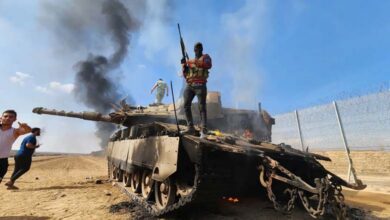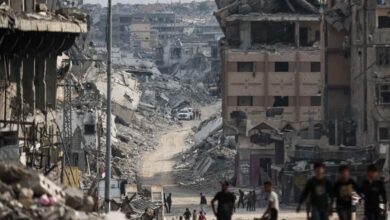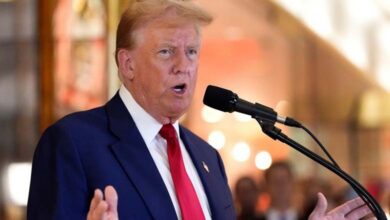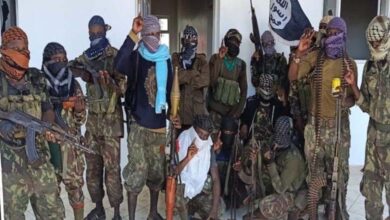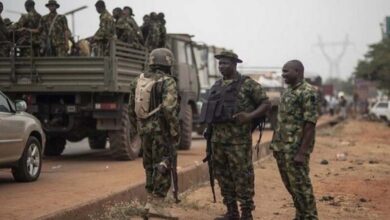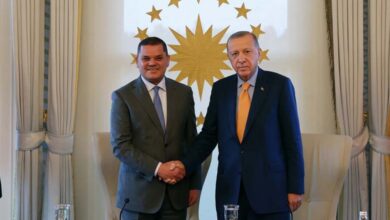A new Terrorist Era – How did the Taliban and Al-Qaeda lead Afghanistan to the abyss?
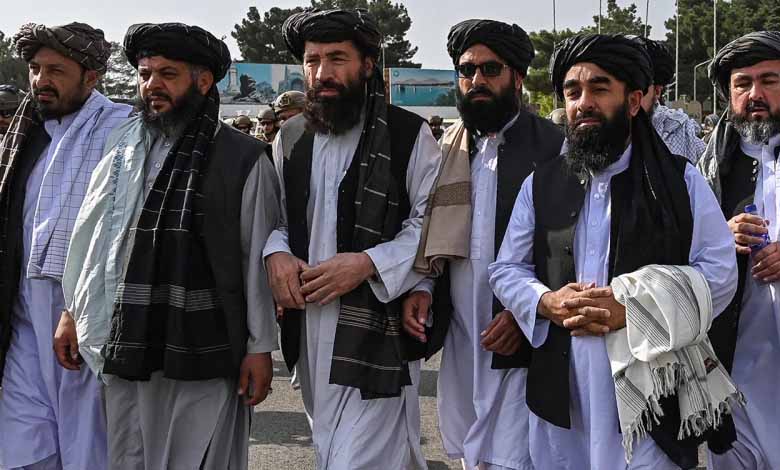
The world commemorates the 9/11 terrorist attacks, which targeted the United States by Al-Qaeda, which spread chaos in Afghanistan, as well as the Taliban movement, which followed the American withdrawal from Afghanistan.
An Australian report indicated that the commemoration of these attacks requires highlighting two other events, the assassination of Afghan leader Ahmad Shah Massoud on September 9th, 2001 by Al-Qaeda operatives, two days before the September attacks. Massoud fought Soviet forces in Afghanistan in the 1980s and the Taliban and Al-Qaeda alliance in the following decade. The other event in this gloomy trio is the Taliban’s restoration of power following the withdrawal of the United States and its allies from Afghanistan a year ago.
Terrorist legacy
The Australian network, ASPI, confirmed that Al-Qaeda’s attacks on the United States were unprecedented, as was the retaliatory US invasion of Afghanistan as the first blow in the war on terrorism and as an attempt to democratize a highly traditional, socially divided, economically impoverished and conflict-torn country, where Afghanistan has been mired in a bloody war fueled by the fragility of the local situation, competition for internal power, and external interventions, since the time of the pro-Soviet coup in 1978.
Massoud, whose goal was the independence of Islamic, sovereign and progressive Afghanistan, turned his stronghold in the Panjshir Valley north of Kabul into a stronghold, first against the Soviets and the alternative government in Kabul, then against the forces supported by Pakistan and the Taliban allied with Al-Qaeda who established a theocratic reign of terror, and for his courageous leadership, wise and strategic, became known as the Lion of Panjshir, or what Sandy Gall calls in his latest book, “Napoleon the Afghan.” Massoud had warned the West several months before the 9/11 events about the danger of terrorist attacks from Afghanistan, and became the first target of Al-Qaeda and was killed as part of the group’s preparations for its planned attacks on the United States two days later.
Massoud’s legacy did not die with him. The cooperation of his forces proved crucial in the US military campaign that toppled the Taliban government and scattered its leaders and activists, as well as al-Qaeda leaders, into Pakistan.
It went on to say that Afghanistan’s leaders, along with many other powerful men, have not only succeeded in freeing themselves from self-interest and power struggles to generate national unity and broad prosperity, they have not only failed the Afghan people, but they have also been unable to provide the United States and its allies with an effective and reliable partner on the ground.
Meanwhile, despite its massive investment in human and material resources, the US lacked a meaningful understanding of Afghanistan’s complexities and neighborhood, and thus could not pursue an appropriate strategy, ideally to lose a great power in a small war – it failed the people of Afghanistan, and the Taliban and their supporters could hope for nothing better than the loss of America.
A New Terrorist Era
According to the Australian network, the US and its allies finally decided to extricate their forces from an unwinnable war. It took an outspoken US critic of the war, President Donald Trump, with the help of Republican Savior and new Afghan-American Governor Zalmay Khalilzad, to conclude a 2020 Doha peace deal with the Taliban.
This has entailed the withdrawal of all foreign troops from Afghanistan in exchange for nothing to be observed by the Taliban, not even a comprehensive ceasefire, let alone a viable political settlement to the conflict, the report said.
The network asserted that Afghanistan was offered on a golden platter to the Taliban and their outside backers, yet Trump’s successor, Joe Biden, simply completed the withdrawal process, opening the door for the Taliban to declare their religious system under the leadership of individuals most of whom are still on the UN terrorist blacklist and some are wanted by the FBI.
Although Khalilzad and some naive analysts believe that the Taliban have changed, it is now clear that there is nothing like the “new Taliban,” they have brought back a reign of terror, targeting women and anyone else who opposes their repressive religious rule, to be overturned by two decades of liberal-leaning changes and reconstruction efforts in Afghanistan that saw the emergence of an educated and well-connected young Afghan generation with hopes for a better future, but Afghanistan plunged into economic, financial, social and cultural darkness, now facing famine and becoming a pariah state.



